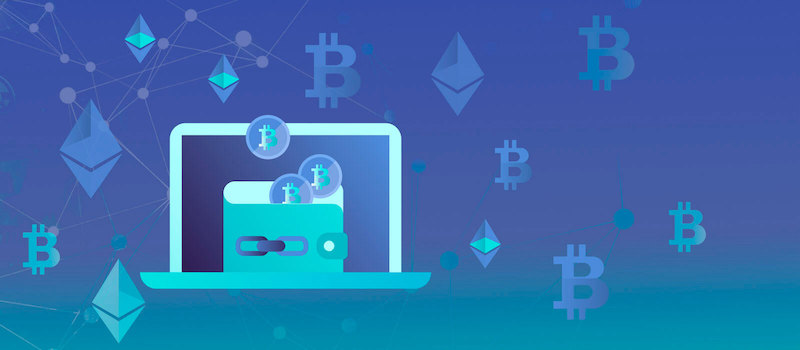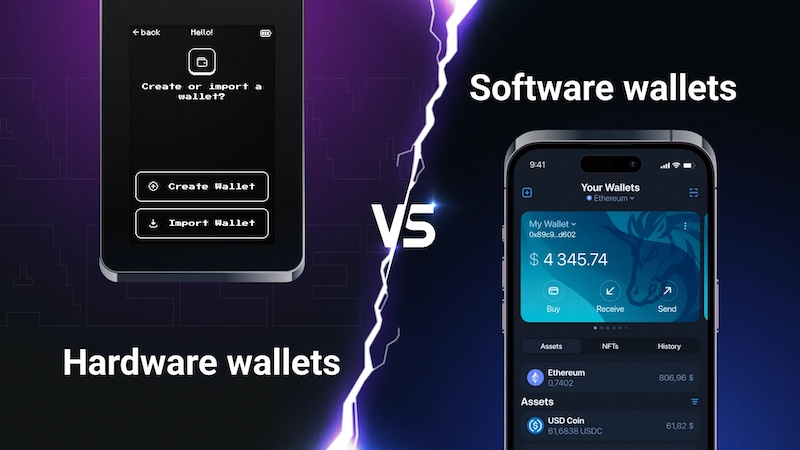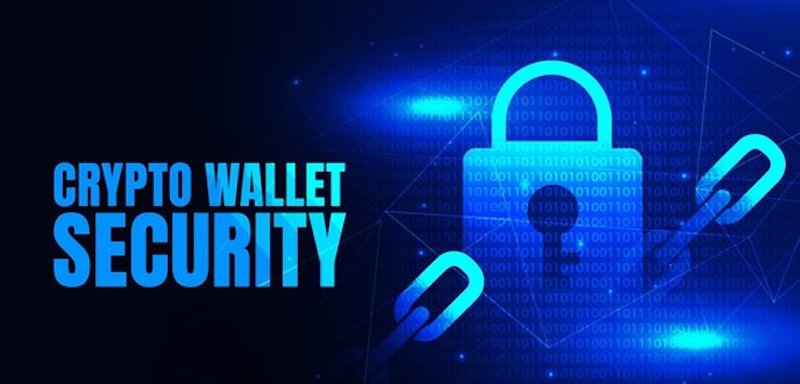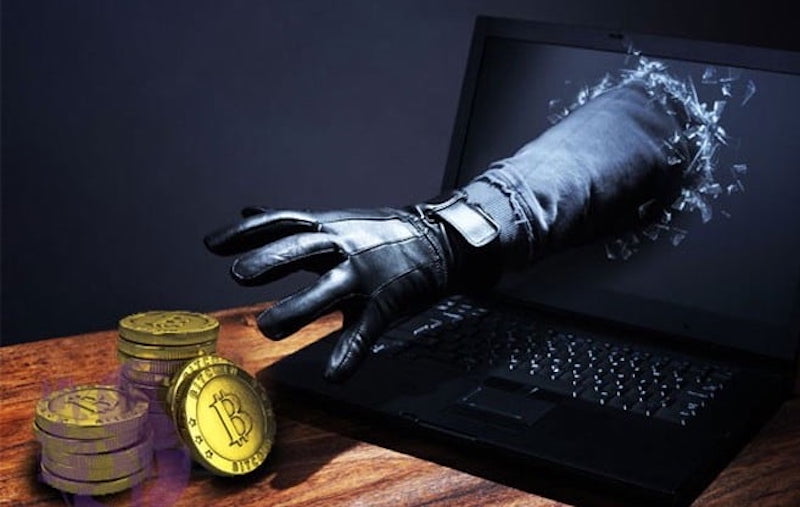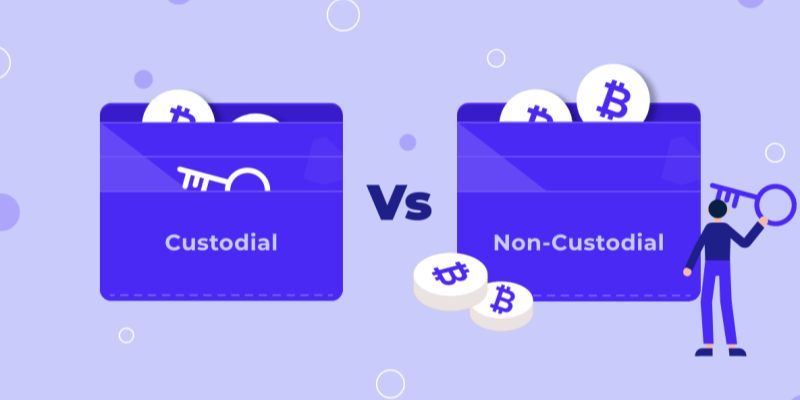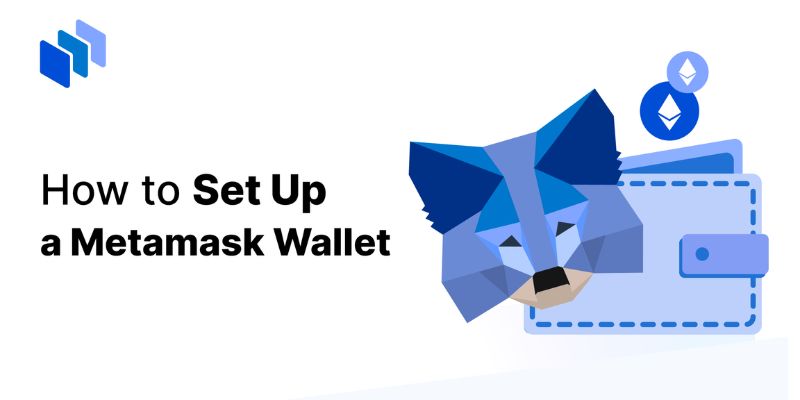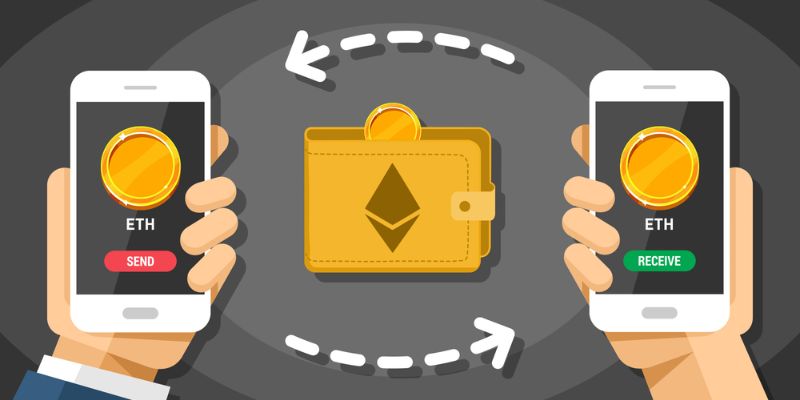As an expert in the crypto sphere, I’m always on the hunt for the most secure desktop crypto wallets. Your digital coins are like treasure, so protection is key. Imagine a vault so strong, hackers can’t crack it. That’s what we’re talking about. No fluff, just a solid lock on your digital wealth. In this guide, I’ll lay down the game-changing features and strategies for keeping your investments safe. Dive in to master the art of safeguarding your crypto like a pro.
Understanding Desktop Wallet Security Features
The Importance of Encryption in Cryptocurrency Storage Safety
Secure desktop wallets keep your coins safe with tough encryption. Encryption takes your wallet’s data and scrambles it, making it hard for thieves. Think of it like a secret code that only you can read. Every time you look at your coins, your wallet uses a key to decode the information. It’s so good that even if hackers get your wallet’s data, they can’t use it without the key.
Having encryption means you sleep well at night, not worrying about crypto thieves. Private keys are like your own personal crypto password, and top wallets always keep them encrypted. They never expose your keys online, which keeps them out of hackers’ hands.
For storing large amounts of crypto, encryption is non-negotiable. It’s the main thing keeping your digital wealth from being an easy target. Every wallet will tell you it’s secure, but only the best have tough, tested encryption.
Look for wallets that update their security often. This keeps you safe from new threats as they come. And remember, never share your keys or password. It’s the number one rule for your coin’s safety.
The Role of Multi-Signature Technology in Enhancing Security
Now, let’s chat about multi-signature tech, or multi-sig for short. Think of it as a high-tech lock that needs several keys to open. In this case, the keys are approvals from different people. Let’s say you have a wallet with multi-sig. To send coins, you need more than one person to say okay.
No single person can move the coins by themselves. This is great for businesses or groups who handle crypto. Everyone gets a say before a transaction can happen.
This also protects you from theft. Even if a hacker gets one key, they can’t take your money without the others. And it helps with lost keys, too. If you lose your key but have multi-sig, you can still get into your wallet with help from the other key holders.
When setting up a wallet, look for options to turn on multi-sig. It’s an extra step, but it gives you a lot of extra safety. It’s like having a bank vault for your digital dollars.
Keep in mind, multi-sig can be complex. Make sure you know how to use it and keep all keys safe. And don’t worry, there are plenty of user guides to help you. Using multi-signature well means your crypto is super secure.
Using the power of strong encryption and multi-sig can make your desktop wallet as safe as it gets. Do your homework, read up on security features, and pick a wallet that gives you peace of mind. Your future self will thank you for keeping your digital coins locked down tight.
Cold Storage vs. Hot Wallets: Choosing the Right Wallet for Your Needs
Comparing Hardware vs Software Wallets
When it comes to crypto, safety is a big deal. Should you go with a hardware or software wallet? Let’s dive in.
Hardware wallets are like safes for your digital money. They hold your coins offline, away from hackers. Think of it as your personal vault. Software wallets, on the other hand, live on your computer or phone. They’re easy to use but face more risks since they’re connected to the internet.
Hardware wallets have the upper hand in security. Since they’re offline, it’s harder for bad guys to get to your cash. Plus, if your computer catches a virus, your hardware wallet keeps your coins safe. But there’s a catch: hardware wallets can cost a pretty penny.
Software wallets are free and quick to set up. They’re good for day-to-day use. Plus, some software wallets let you swap coins right inside the app. But, they’re tempting targets for hackers. You must be careful and keep your computer security tight.
To pick between hardware and software, think about what matters most to you. Want top-notch security? Go hardware. Need easy access and no cost? Software might be your best bet.
Integrating Cold Storage Wallets into Your Security Plan
Got a bunch of crypto? It might be time to think about cold storage wallets. Cold storage wallets keep your coins off the internet. This shields them from cyber attacks and online theft.
You might hear about paper wallets or hardware wallets. Paper wallets are just that – your keys printed on paper. They’re like cash—if you lose them, they’re gone for good. Hardware wallets, though, are tough little devices. They protect your coins even if your computer is full of viruses.
When adding cold storage to your plan, mix it up. Use both cold and hot wallets. Keep your long-term investments in cold storage. Use a hot wallet for coins you move around more often. It’s like having a checking and a savings account.
Backing up your wallets is key. For hardware wallets, write down the recovery phrase. Keep it somewhere real safe, like a locked drawer or even a bank’s safety deposit box. Lose this, and you might lose all your coins.
Encryption is your friend. Always use a strong passphrase for your wallet. It should be something only you would know. This adds another wall between your money and the bad guys.
Private key management? Super important. If someone gets your keys, they get your coins. Keep keys off your computer and in cold storage. Even in cold storage, keep them hidden and locked up.
When using a desktop wallet, follow the golden rules of security. Protect your coins like the treasures they are. Stay on top of updates, and use antivirus software. And never, ever give out your private keys or passphrase.
Keeping your crypto safe doesn’t have to be hard. With the right mix of hardware and software wallets, you’re setting up a strong shield for your digital wealth. Choose wisely, back up always, and keep your keys and passphrase secure. Then, you can relax a bit more, knowing your digital gold is well-protected.
Best Practices in Desktop Wallet Management
Effective Private Keys Management and Secure Backup Strategies
Take care of your private keys like gold. They unlock your crypto wealth. Protect them from loss and theft.
How do you manage desktop wallet private keys safely?
Store private keys offline. Keep them away from the internet to stop hackers. Write them down or print them – this is called a paper wallet.
Now let’s dig deeper. You might find encryption tools handy, turning your keys into secret codes. Use strong passwords for your desktop wallet encryption. Make them hard to guess. Think long and maybe mix numbers with letters.
For backups, have a few copies of your key information. Spread these in different places. Consider a safe at home, maybe one at a trusted family member’s house, or a bank deposit box. But remember, access should be yours alone or with people you trust fully.
Implementing Trustless Multisig Setups and Recovery Processes
Trust is good, but control is better. That’s where trustless multisig setups come in.
What’s a trustless multisig setup?
Think of it as a shared lockbox. You need two or more keys to open it. This way, no single person can control the crypto alone.
Why’s that cool? Imagine losing your key or someone stealing it. With multisig, no worries. They need the other keys too. So, your crypto’s safer.
Plus, set a recovery process for emergencies. That could mean a list of trusted people ready to help if needed. This doesn’t just give peace of mind. It’s a smart move in a world where things can go wrong fast.
For these setups, here’s a rule: never share all your keys in one place. And for every backup step you take, always have a plan if things don’t go as planned.
Let’s recap. Keep private keys offline and secure. Mix up your backup locations. Go for multisig for added safety. Have a backup plan ready for your crypto.
Following these steps is like building a fort around your digital wealth. Keeping it safe is your mission. Are you ready?
Mitigating Cyber Threats: Desktop Wallet Security Tips and Audits
Preventing Desktop Wallet Vulnerabilities and Hacking Attempts
We all need to keep our digital coins safe. It’s like guarding a treasure chest. Have you ever thought about how to keep your crypto wallet secure? Well, that’s where desktop wallet security comes in. To fend off hacking attempts, there are some solid steps you can take.
For starters, desktop wallet encryption is a must. Think of it as a secret code that locks up your coins. Nobody can access your crypto without this code. A strong crypto wallet passphrase is like a robust lock on your digital door. So always pick a tough one.
Backing up crypto wallets is also key. It’s like keeping a spare key to your treasure. If your computer breaks, you won’t lose your crypto. Cold storage wallets help, too. They are like secret vaults away from the internet where hackers can’t reach.
We should also chat about the risks of hot wallets. These are wallets connected to the internet. Sure, they’re handy. Yet, they’re also easy targets for thieves. So be careful with them.
Keeping your software up to date is smart. Old software may have weak spots that bad guys can use. Always update your wallet and computer to fix these holes.
Another good idea is avoiding dodgy websites and emails. Clicking on bad links can invite hackers in without you knowing. Stick to trusted sites and be wary of fishy emails.
Lastly, let’s talk about protecting yourself from you. Yes, you read that right. Sometimes, we forget passwords or delete files by mistake. Write down your passphrase and store it somewhere safe. And always double-check before you delete anything important to your wallet.
Employing Two-Factor Authentication and Regular Security Audits
Now, you’ll want to add an extra layer of security, and that’s where two-factor authentication (2FA) steps in. Think of it as a double door. Even if someone cracks your password, they can’t get in without the second key. Most top-rated desktop wallets offer 2FA. It’s a smart move to turn it on.
And how about security audits? They are like check-ups for your wallet’s health. Experts look for any weak spots that might let thieves in. Just like you’d have your car checked, do the same for your wallet. Many trusted desktop wallet brands recommend regular audits.
Let’s not forget about keeping everything a secret. Only tell people you truly trust about your crypto. And even then, share just what they need to know.
To sum it up, you’ve got to be on guard. Use strong encryption, make secure backups, be smart online, and lock your wallet tight with 2FA. With these desktop wallet security tips, you’re well on your way to blocking hackers and protecting your digital riches.
To wrap it up, we’ve gone through key parts of desktop wallet security. We dug into encryption, multi-signature tech, and how they keep your crypto safe. We weighed the pros and cons of hot wallets against cold storage, showing why your choice matters.
We shared smart moves for managing your keys and backups, plus how to set up a trustless multisig system. Lastly, we tackled how to defend your wallet from hackers and the importance of two-factor authentication and security check-ups.
Remember, staying safe in the crypto world isn’t tough if you follow these steps. Keep your eyes open, stay informed, and your digital coins will be secure. Stay safe and smart out there!
Q&A :
What are the top-rated secure desktop crypto wallets?
When it comes to safeguarding digital currencies, selecting a highly secure desktop crypto wallet is crucial. The most reputable wallets known for their robust security features include Exodus, which offers a user-friendly interface and hardware wallet support; Electrum, known for its advanced features and long-standing reputation; and Armory, acclaimed for its extensive security and cold storage options. Always ensure that you’re downloading the latest official version of the wallet to maintain optimal security.
How do I ensure my desktop crypto wallet is secure?
To maximize the security of your desktop crypto wallet, adhere to the following best practices: set a strong, unique password and update it regularly; always keep your wallet software updated to the latest version; use two-factor authentication (2FA) if available; perform regular backups of your wallet; use additional hardware wallets if possible; and be mindful of phishing attacks by verifying all communication and links regarding your crypto activities.
What are the benefits of using a desktop crypto wallet?
Desktop crypto wallets provide users with enhanced control over their private keys, which are not stored on a third-party server, thereby improving security. They offer a more stable and consistent environment compared to web wallets, less vulnerability to hackers than mobile wallets, and the ability to include advanced functionalities and integrations with other applications and services. For optimal security and control, desktop wallets are an excellent choice for handling and storing cryptocurrencies.
Can desktop crypto wallets be hacked, and how can I prevent this?
While desktop crypto wallets are generally secure, they can be vulnerable to malware and hacking if proper precautions are not taken. To deter potential breaches, always keep your operating system and wallet software updated, install reputable anti-virus and anti-malware software, avoid clicking on suspicious links or downloading unknown attachments, and consider using a dedicated computer for cryptocurrency transactions. Encrypting your wallet and using hardware wallets for storing large amounts can also greatly reduce the risk of hacking.
Are desktop crypto wallets better than online wallets?
Desktop wallets offer superior security over online wallets as they store the private keys locally on the user’s computer rather than on a remote server that could be a target for hackers. Additionally, desktop wallets allow for full control over one’s funds without depending on third-party services, which may face downtime or other issues. However, desktop wallets necessitate that users are diligent about security measures like regular backups and updates, while online wallets provide convenience and ease of access, particularly for users who transact frequently and require mobility.

